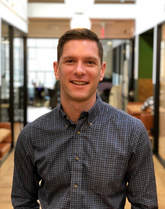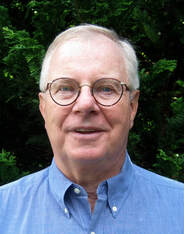 Brad Rathgeber Brad Rathgeber I’m often asked by independent school faculty members, “How do you know your courses are any good?” We start out by pointing to data: 96% of our students say that their One Schoolhouse courses are as challenging or more challenging than their face-to-face classes, 85% report gaining greater academic maturity, 83% report being inspired to be creative, and 80% report seeing direct ties between classroom learning and real-world application. Those data points stack up well in the independent school community, but it doesn’t answer one of the assumptions in the question: that online courses can’t be as good as the courses offered on an independent school campus. We know that a great education starts with extraordinary teachers and transforms students’ experiences. That’s why we start with great teachers. Our teacher training program and teacher evaluation and coaching models are more comprehensive and rigorous than any schools we know, and we recruit our teachers based on recommendations from top independent schools from around the country, where many of them teach. Great teachers open students’ minds and change the ways they see the world. Stories can get to the heart of those experiences in a way that data can’t. That’s why throughout the spring and summer, you’ll be hearing from our students more and more about what it’s like to learn online with One Schoolhouse. You’ll see these stories arrive in your inbox over the coming weeks, and in case you missed the first three, we want to make sure that you hear from Amanda, Isabel, and Miriam.  “What we're learning in class is actually going to relate to real life,” Amanda says about her economics classes at One Schoolhouse. As a junior, she knew she wanted to explore her interest in business, but the economics course her school offered didn’t fit into her schedule. Instead, Amanda enrolled in One Schoolhouse’s AP Macroeconomics course, and she liked it so much she returned for AP Microeconomics in her senior year. “I also like math,” says Amanda, “so [economics] was a nice way to tie business and math together. And I know economics has a lot of calculus... It was cool to combine my learning from different classes.” In both classes, she says, “I've often seen specific concepts, like opportunity costs, that come up in our lives every day… My favorite thing was being able to relate what I'm learning in economics to the real world.” - Amanda from Laurel School  “I wasn't expecting to actually talk to my friends in the class--I call them friends now,” says Isabella about her classmates in Multivariable Calculus & Differential Equations. Before she began the class, she expected online learning would be mostly watching videos. Instead, she discovered connection and collaboration between students and their teacher. “I meet with Dr. Braun on Skype, usually the week before a test or an exam, or just when I have questions,” she says. Her classmates are also resources: “Sometimes I ask questions, sometimes I help others, so it's a good support system… You get to know so many other people in your class. You're not alone, sitting in front of a computer.” The community of her class has given Isabella confidence when she looks ahead to college, where she plans to study biochemistry. “It's collaboration, how to communicate with your teacher, time management, everything--those are life skills you need whatever you do. I think it prepares me well for college next year.” -- Isabella from Westover School  “Math is one of my favorite subjects,” says Miriam, “and I really want to reach the highest level classes.” As a ninth grader in Algebra I, however, she knew she needed to find a new way to move forward. When her teacher recommended One Schoolhouse, Miriam and her parents spent a lot of time researching the program, looking for a class that would have a strong teacher as a ready resource. Taking Geometry at One Schoolhouse “was one of the best experiences I've ever experienced. Once I had my first meeting with Ms. Boudreau, I felt so comfortable. She offered me advice, she told me to just take it one step at a time... The communication that I had with Ms. Boudreau, and the materials that she gave us, really made it comfortable and made it easy and made it understandable for us.” With an A in her summer Geometry course, Miriam jumped into Honors Algebra II for her sophomore year. Her advice to students considering a summer class: “Take it one step at a time... if you really believe in yourself, you can do it.” -- Miriam from Linden Hall
1 Comment
 Peter Gow Peter Gow It was turning into one of those contentious Department Heads meetings, about twelve years back. The incendiary topic: summer reading. Such touchy meetings were an annual event in my life as a school administrator, not because people opposed the idea of summer reading—really, who could, completely?—but because of the A-word: accountability. Shouldn’t we require kids to keep a reflective written log that their English teachers could then review and grade on the first day of school, or perhaps there ought to be a mandatory piece of writing done in English class on the first day of school? Maybe there should be a book requirement from every department, with essays or tests on the reading in the first few days of classes? Otherwise, how were we to be certain that our students had actually read these mandatory batch “outside” books? And then there was the other side: Reading is supposed to be fun! Doesn’t mandating all this stuff just suck the joy out of the whole idea of reading for many kids?! Sound familiar? I’m a fan of reading, and when I was a kid I probably did most of my personal reading in the summer. (Even in the Sixties, independent school homework was IMPORTANT and RIGOROUS and killed filled a lot of time; plus, I had a 90-minute commute each way to school.) So the idea of turning reading into a sort of penalty for being a kid on vacation has never really appealed to me. But then our assistant head Rob Connor (who now heads an extraordinary ICG Partner School, The Christina Seix academy in New Jersey) had a big, hairy, audacious idea. To be sure, it didn’t end the accountability debate, but it utterly re-framed the discussion. “If the idea here is to help kids expand their horizons,” says he, “why not put together a list of activities, of things kids could do that would give them new experiences? We can keep talking about summer reading, but we know that experiences stick.” By the next day a couple of us had put together a list of several dozen ideas, including
Families were pleased, though no one jumps for joy when these lists arrive home in the mail, as they used to in those olden days. We heard from kids that they did things; maybe not learn to juggle, but maybe learn to ride a unicycle. Kids’ mental and social palates expanded. Kids found things that interested them and figured out their own activities Did this idea change the world? Probably not. Did it change kids’ lives or perspectives? Possibly, even in little ways, which was the point. Could we have done with this idea? Absolutely—why not voluntary exhibitions on a special “Smiles of a Summer” night? (Wish we’d thought of that then!) Did students even follow an interest from exploring and doing into the realm of reading more about it? We guess that some of them did, completing the circle. In time the school moved away from this, and from mandated summer reading other than a grade-level book. The school’s philosophy became one of very soft hands about telling families what to do in any way, which I can respect. Some years ago, at the suggestion of one of my own children, I compiled my own expanded version of the discontinued school list (with glosses on each entry) into a website, to which I confess I haven’t added much lately. You can also download an un-glossed version of this list, made available through the Independent Curriculum Group, here. Let us be clear. We like and support the idea that students should read, and we believe to the bottom of our souls that reading is a seminal and essential skill and tool. But summer reading is too often an unexamined practice, something we “do” because we always have. But once we start contemplating the purposes of “summer reading,” the whole idea of what we’d like kids to be doing in their unassigned time expands pretty quickly. The more we can think about offering suggestions of things to do, regardless of our reflexive and often superfluous need for accountability, the more we place students and their own interests and passions at the center of that practice—to make it their practice, not our practice. |
Don't miss our weekly blog posts by joining our newsletter mailing list below:AuthorsBrad Rathgeber (he/him/his) Archives
July 2024
Categories |

 RSS Feed
RSS Feed